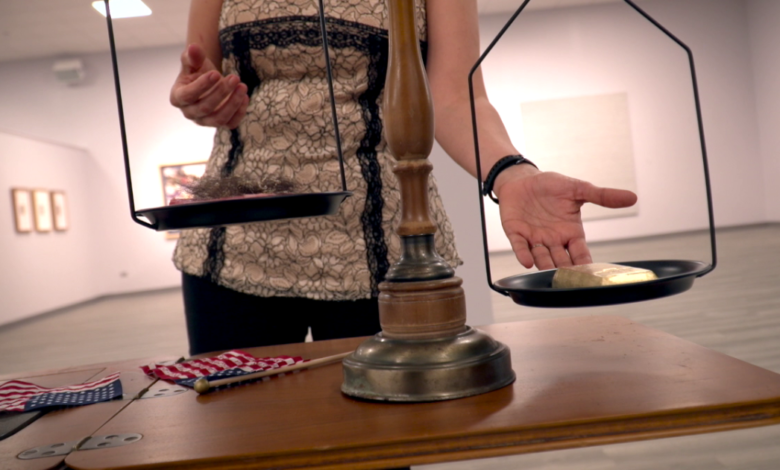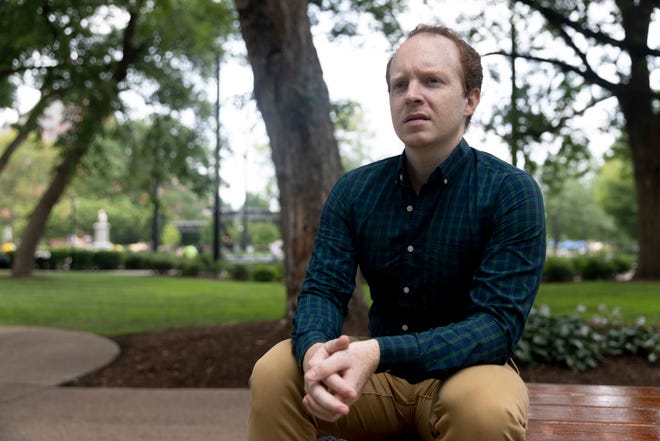
CHICAGO — Art can be beautiful and inspirational. But for some artists, creating works that stir the soul and the mind goes beyond just the brush and canvas.
Socio-political activist and artist Pritika Chowdhry focuses her work on reframing traumatic geopolitical events like 9/11. She sees art as a way to ask difficult questions.
“This is the artist asking, 'God are you there? Do you see what's happening? Are you still there?'”
She studies seismic geopolitical events in depth and channels that into her artwork.
“And then, I try to excavate things from those events that have been not spoken about as much as they probably should have been,” she explained.
Chowdhry calls these the counter-memories of trauma. Sept. 11, for example, she says became about never forgetting the nearly 3,000 lives lost that day. But she says the lives lost went far beyond that in countries half a world away.
“In the context of 9/11, it's almost unpatriotic to say, ‘Hey, but what about all these other lives that are now in the millions that were lost?'”
Chowdhry has channeled that notion in what she calls the Counter Memory Project, an effort to memorialize the "unbearable memories."
“This is a...this is a scale of justice," she said.
In one of her works "Ungrievable Lives: Ghosts of 9/11," she examines what she calls the "differential values placed on human life."
“The heavier side has this gold bullion bar, and it says, ‘One life 9/11, 2001.’ And then if you turn it over, it says. ‘One of 2,983. Made in America.’”
It’s a commentary on what lives are worth shedding tears over and which ones are not.
“What is this gold standard? Clearly, an American life,” said Chowdhry.
On the other side of the scale rests a piece of meat, hair, and nail clippings.
“This is representative, as I was saying earlier of the non-American lives that we do not grieve for,” said Chowdhry.
It’s undoubtedly provocative, something Chowdhry knows all too well.
“I'm an American citizen. I love this country despite all its flaws. I do. I call this home,” she said. “It's OK for us to let our guard down once in a while to introspect and see we, even as a powerful moral nation get it wrong.”
Getting it wrong was punctuated in recent weeks as the last known missile fired in Afghanistan by the U.S. military last turned out to be a grave error.
The botched American drone strike killed 10 civilians including seven children. The youngest child Sumaya was just 2 years old. On September 17, weeks after the strike, General Frank McKenzie, commander of U.S. Central Command, acknowledged the civilian causalities.
“I offer my profound condolences to the family and friends of those who were killed,” said McKenzie. “But it was a mistake, and I offer my sincere apology.”
It was a stunning admission coming at the end of the United States’ longest-running war. But Chowdhry says she is optimistic that it was a signal of change.
“Maybe there is a there is a shift,” she said. “We're finally witnessing a shift after 20 years where I think finally people even in America are realizing that maybe what we're doing is wrong and maybe the people over there are human, are grievable.”
And while she knows some may be angered by her anti-memorial work, she hopes to tilt the scale to the center, valuing each life lost as equally tragic and worthy of remembrance.






